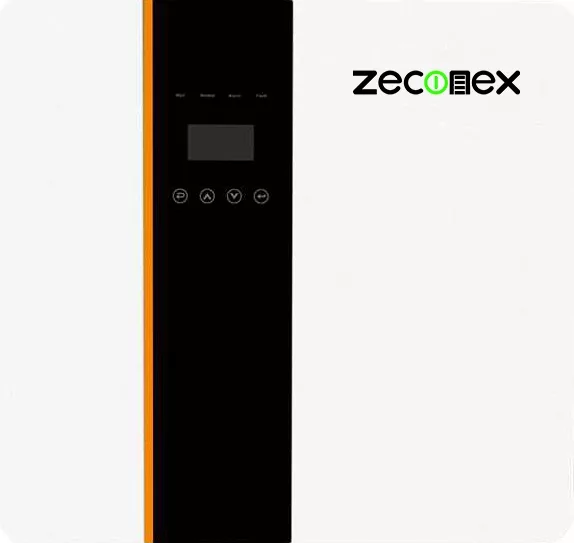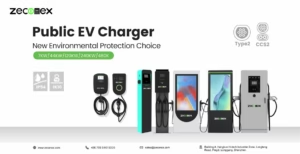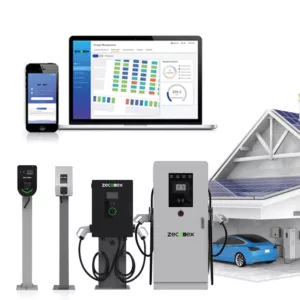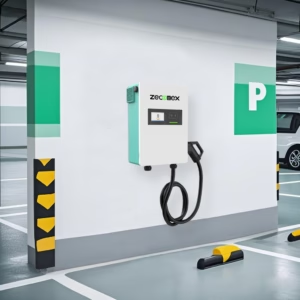A hybrid inverter is an inverter that combines solar energy with battery storage. It converts solar energy into electricity that can be used in a home or business and stores excess electricity in batteries for later use.
Reasons for using hybrid inverters in solar power systems
Maximize Self-Consumption & Reduce Electricity Bills: A hybrid inverter allows you to store excess solar energy generated during the day in batteries. This stored energy can then be used to power your home appliances at night or during peak grid hours when electricity rates are higher. This reduces your reliance on the utility grid and lowers your electricity bills.
Backup Power During Outages: If you experience a power outage from the grid, a hybrid inverter with a battery backup system can keep your essential appliances running. This provides peace of mind and ensures some level of normalcy during outages.
Off-Grid Capability (Optional):Some hybrid inverters offer off-grid functionality. This allows you to completely disconnect from the utility grid and rely solely on your solar panels and battery storage for power. This can be ideal for remote locations or those seeking complete energy independence.
Future-Proofing Your System: Even if you don't currently have batteries, a hybrid inverter can be a smart choice. This is because it allows you to easily add battery storage later on without needing to replace the entire inverter system.

Scenarios where a hybrid inverter might not be the best choice
Limited Budget: Hybrid inverters are generally more expensive than standard grid-tie inverters. If you're on a tight budget and maximizing self-consumption is your primary concern, a grid-tie inverter might be sufficient.
Low Electricity Rates: If you have a very good net metering agreement with your utility company and electricity rates are consistently low, the cost savings from increased self-consumption might not justify the additional cost of a hybrid inverter.
Limited Roof Space: If your roof space is limited and you can't generate enough excess solar energy to justify battery storage, a grid-tie inverter might be more suitable.
Ultimately, the decision of whether or not to use a hybrid inverter depends on your specific needs and priorities. Consider factors like your budget, electricity rates, desired level of energy independence, and future plans for battery storage.
FAQ
What is a hybrid inverter?
A hybrid inverter is an inverter that combines solar energy with battery storage. It converts solar energy into electricity that can be used in a home or business and stores excess electricity in batteries for later use.
What are the advantages of hybrid inverters?
Increase energy self-sufficiency: Hybrid inverters can maximize solar power and store it in batteries for later use. This can help you reduce your dependence on the grid and increase your energy self-sufficiency.
Lower Electricity Bills: Hybrid inverters can help you buy less power from the grid, thus lowering your electricity bills.
Provide backup power: A hybrid inverter can provide backup power to power your home or business during a power outage.
How much does a hybrid inverter cost?
Hybrid inverters cost more than conventional inverters. A typical hybrid inverter system, including the inverter, batteries, and installation costs, can cost thousands of dollars.
When should you use a hybrid inverter?
Hybrid inverters are best suited for the following situations:
Areas with frequent power outages: A hybrid inverter can provide backup power, ensuring you still have power during an outage.
Homes and businesses looking to become more energy self-sufficient: Hybrid inverters can help you reduce your dependence on the grid and become more energy self-sufficient.
Homes and businesses are looking to lower their electricity bills: Hybrid inverters can help you buy less power from the grid, thus lowering your electricity bills.

How to Choose a Reliable EV Charger Manufacturer Worldwide to Grab a Leading Position?
Against the backdrop of the booming global electric vehicle (EV) market, choosing

Who Makes the Best DC Fast Chargers?
The global transition to electric vehicles (EVs) has accelerated the need for

How is a Commercial EV Charger Constructed?
As the demand for electric vehicles (EVs) continues to soar, the need

Demand for Charging Pile Types in Different Regions
Against the backdrop of the rapid development of the global electric vehicle

A Streamlined Guide to 20 Core Decision Points in Charging Pile Procurement
In today's accelerated electrification transition, charging pile procurement has become a key

How Electric Vehicle Charger Wholesalers Respond to Price Fluctuations?
The explosive growth of the electric vehicle (EV) market in recent years
